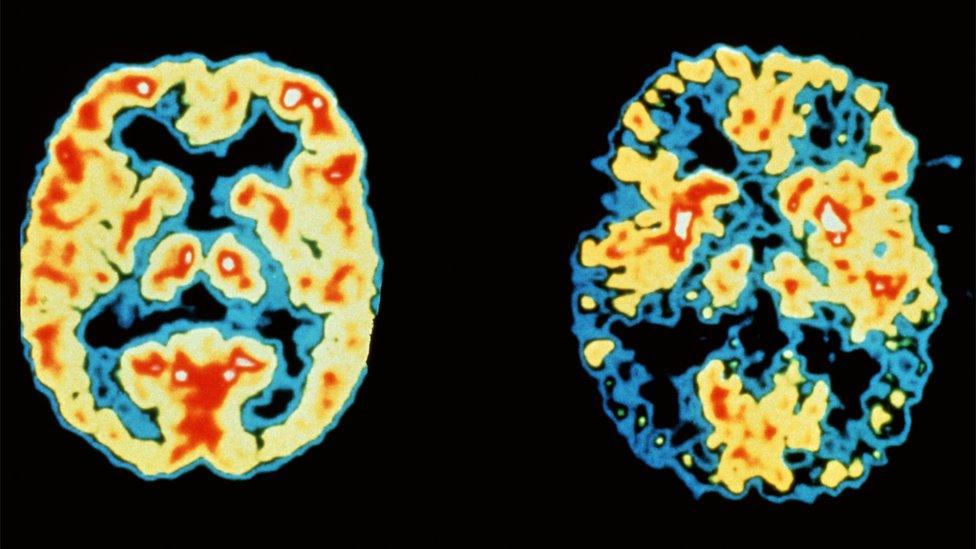Later dementia diagnosis for Welsh speakers, study shows
- Published
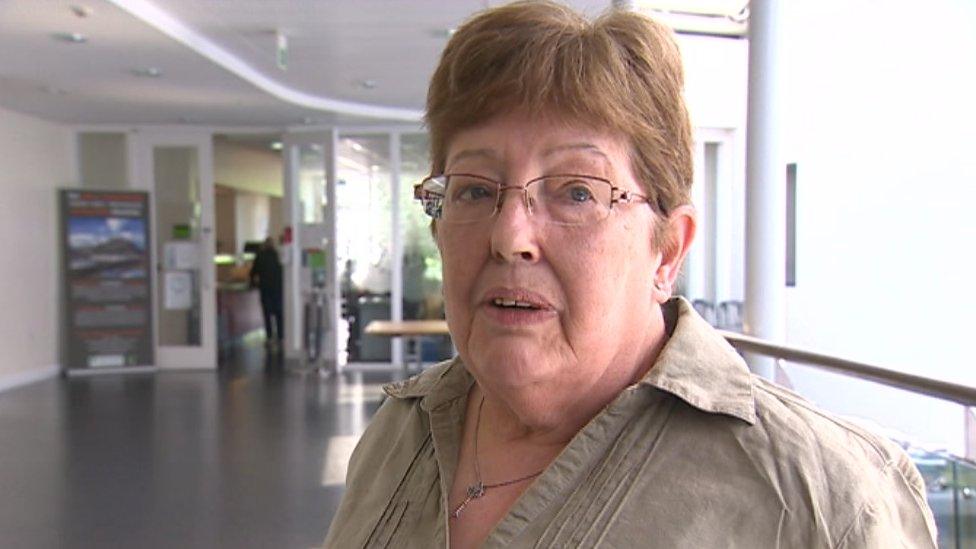
Glenda Roberts said she felt "relief" when she got the diagnosis
First language Welsh speakers were diagnosed with dementia about three years later than those who spoke only English, a study has shown.
Bangor University experts said the findings suggested Welsh speakers might be less inclined to discuss their health or they may have a better support network and seek help later.
The study has been highlighted during Dementia Awareness Week, external.
There are about 45,000 people living with dementia in Wales.
Dementia studies lecturer Dr Catrin Hedd Jones told Newyddion 9 the reasons behind the difference in diagnosis time could be due to a range of factors, including a reluctance to speak up sooner.
"If you're from the area and you've got family you are going to be better supported," she said.
Only English speakers moving to a new area might seek help earlier because they have less support, she added.
Earlier diagnosis means treatment and care can begin sooner.
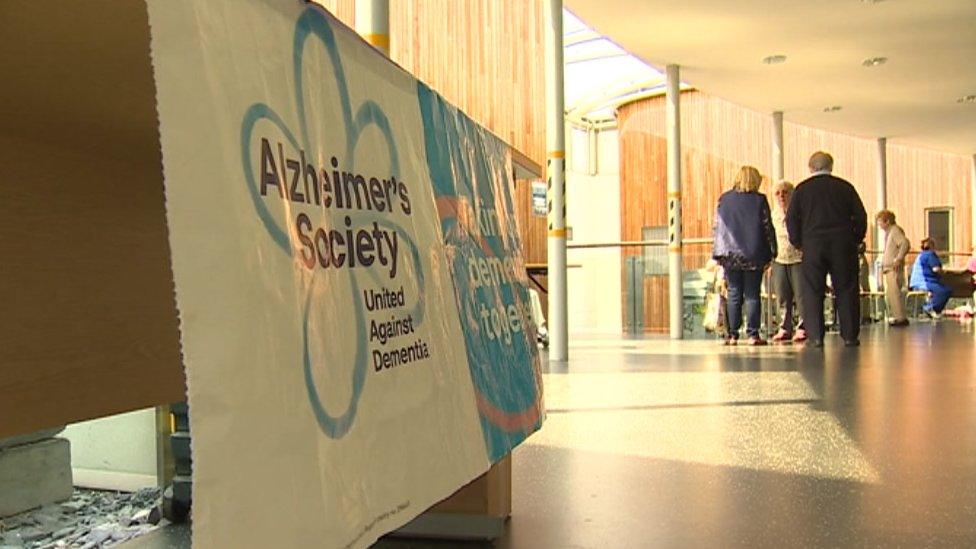
An event was held at Ysbyty Alltwen Hospital, Tremadog, Gwynedd, on Thursday to mark Dementia Awareness Week
The study focused on a small group of people with dementia in north Wales.
Dementia is now the leading cause of death in England and Wales, with the Alzheimer's Society Cymru saying it costs Welsh society £1.4bn a year.
Glenda Roberts from Pwllheli, Gwynedd, was about 53-years-old when she was diagnosed with the disease.
"I was finding that I couldn't do my work 100%," the retired health care worker said.
"I couldn't remember who took sugar in their tea, or I couldn't remember who took milk. Just little things - but it wasn't right, and I felt I was letting people down.
"Once I got the diagnosis it was a relief. I felt better because I knew what I was dealing with."
- Published10 February 2017
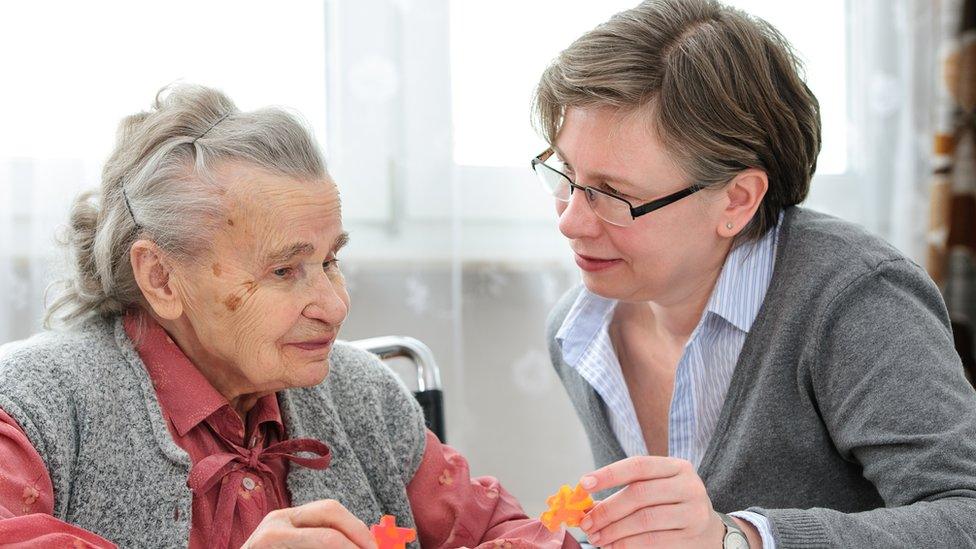
- Published9 January 2017
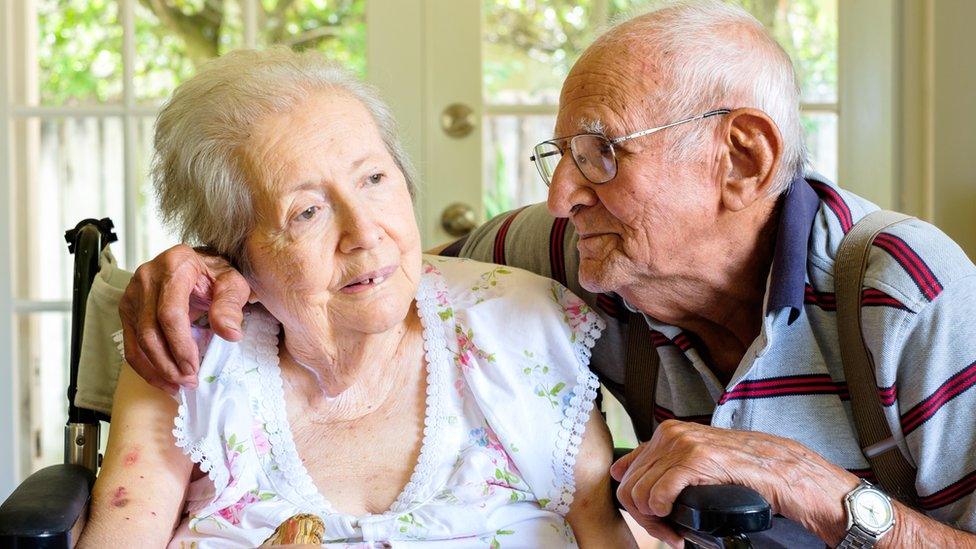
- Published19 November 2016
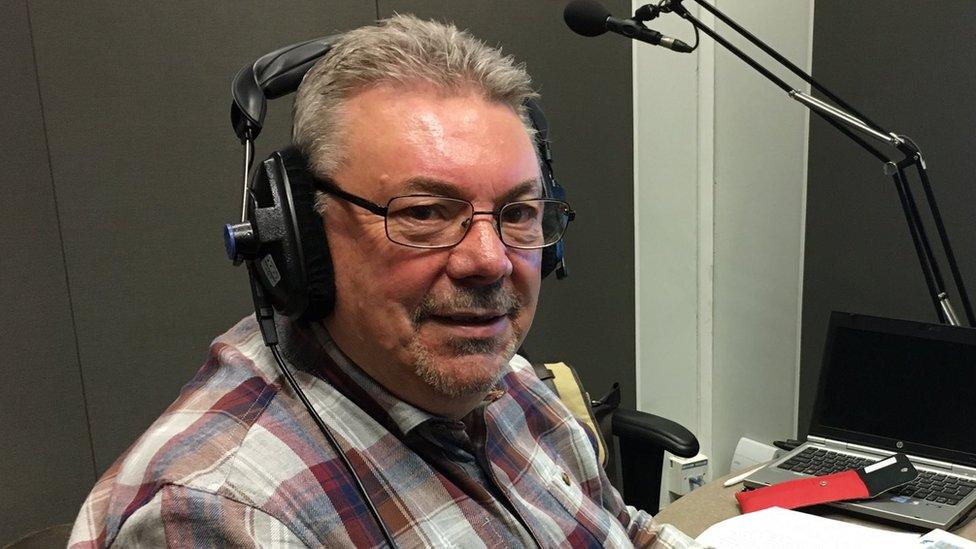
- Published14 November 2016
